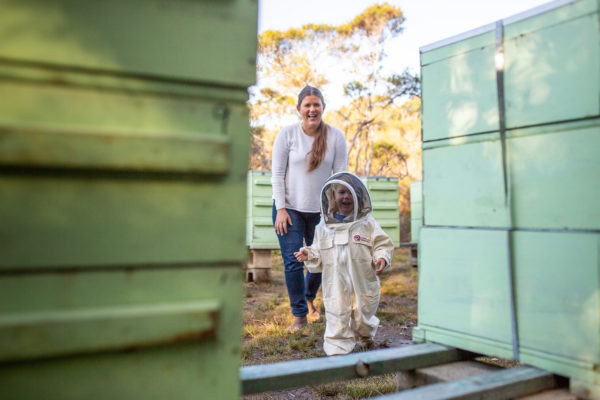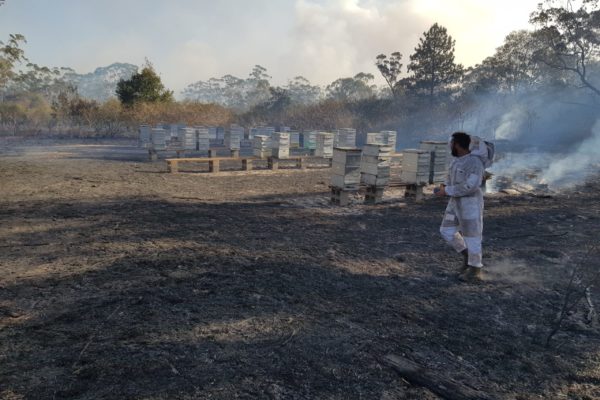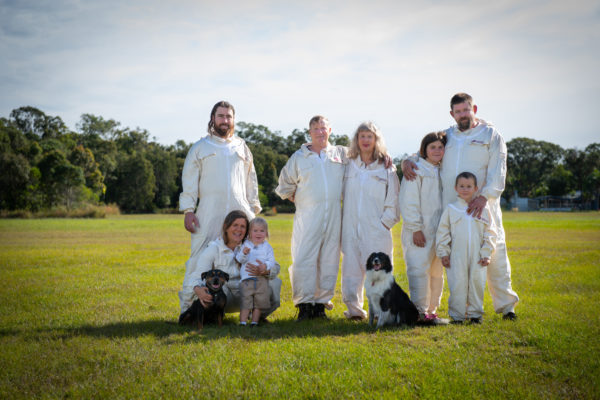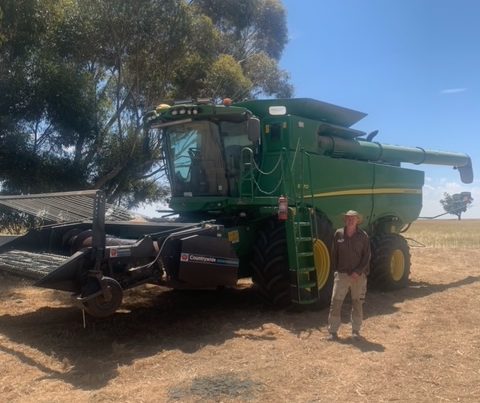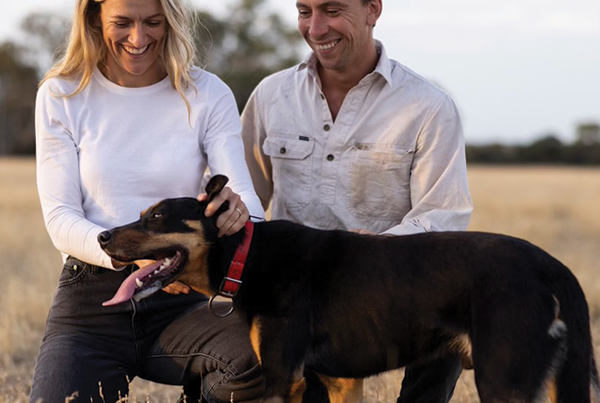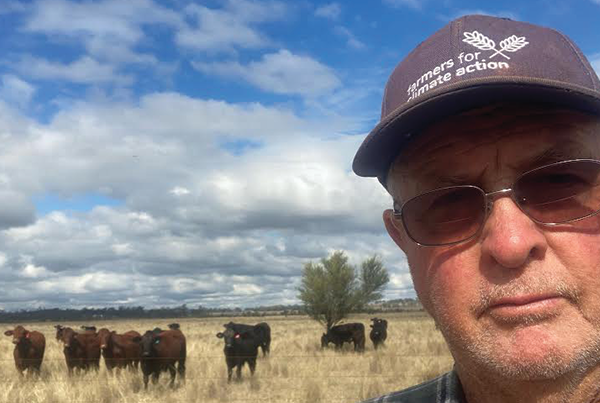At a glance
Who: Hope Evans & Simon McCarthy
What: Beekeepers, Australia’s Manuka and Tyagarah Apiaries
Where: Bundjalung Nation, Northern Rivers, NSW
Can you tell us about your enterprise?
We are a beekeeping family business owned by Hope’s parents, we also have some of our own hives. We run around 1,000 hives in the Northern Rivers region of NSW. The business has been operating for over 25 years in the area.
We produce premium high grade Manuka honey which we export globally and we produce culinary honey which we sell locally. We use natural beekeeping methods with no added pharmaceuticals or sugar feeding. We rely on other farmers and landowners for sites for our honey and we move our bees regularly to access flowers as they bloom. Farmers and landowners getting the benefits of pollination and the gift of some honey.
Hope also has a Master of Environmental Management (Sustainable Development) and works as Financial Adviser in her company Simply Ethical Advice where she specialises in Ethical Investment assisting people to invest in climate and environmental solutions.
What are some opportunities you see for your business in the coming years?
We see more opportunities for export of Manuka honey into new markets and to educate the Australian population more fully on the benefits of Manuka honey. Given the current issues with antibiotic resistant strains of infections Manuka honey can be a good replacement for antibiotics in some instances.
What are the main challenges now and into the future?
Bees and other pollinators are struggling because of toxic chemicals humans produce in industry and modern farming methods. Pollinators habitats are also being destroyed by the climate crisis, because of droughts, fires, floods and pollution. Our current economy and its impact on our planet both from a climate and environmental perspective is scary for us. We are lucky to live in part of the country where there is leadership in organic and natural farming methods, regeneration of forests and production of chemical free natural products.
The Varroa mite and what it brings with it, if not controlled by the DPI, are of great concern for our apiaries. The Varroa mite carry many diseases which can devastate apiaries. Many of the Queen Bee breeders have lost their lineage Queens as they were euthanised in the eradication zone. This is devastating for the entire beekeeping industry as they try to re-establish strong and diverse Queen bee lineage.
Manuka wars, which is what has occurred in New Zealand where beekeepers fight over bee sites. This resulted in violence, hives vandalised and stolen. We have already had some experience with this in Australia. It becomes real concern with beekeepers losing many hives in the Varroa mite eradication zones. People have lost their identity as they lose their bees and are very desperate. Breeding bees takes time so replace all the lost hives is going to take a long time.
How has climate change impacted your business?
We have already seen a lot of devastation from Climate Change. The drought in 2019 forced us to move our bees out of the Northern Rivers for the first time in order to feed them. This was hard as we had to get new sites far away which made caring for the bee difficult and time consuming. Then we had the fires in 2020 which tore through our regular sites and our new sites. We were able to get to the bees and save most of them at our regular sites. It was frightening that we could not get to our bees at the new sites. Good site management saved most of our beehives, but the colonies were disrupted due to moving them at the wrong time and the fires themselves. Watching family members drive into the fires to retrieve them was traumatic. Longer term we have lost a great deal of bush land at some of our sites, so they are not really viable for 3-6 years.
The floods in 2022 caused our honey shed to flood twice so we lost equipment, solar batteries and had to rebuild parts of the shed. This was a big shock as it flooded much higher than it had previously and we spent a long time making repairs. The rains which caused the flooding meant that our bees could not forage or access food. This is because the flowers either did not bloom or there was too much rain for the bees to leave the hives. Many of them died from starvation as we could not get to them or move them due to rain and flooding.
What are some of the on-farm adaptations or changes you’ve been employing in recent years and what’s driving them? How successful have they been, and what benefits have you seen as a result?
Adaptation we have implemented is to move further afield and get sites outside of the Northern Rivers to diversify out sites from the threat of drought, fire and flood. This has been somewhat successful for drought mitigation and keeping our bees alive. However, the strength of the Manuka honey we get at our regular sites is better than the new sites we have found. We were also unable to effectively look after these sites during fire and extreme rain events. We have realised that we need to be more nimble and forward forecasting than before.
We have raised honey shed floor levels and building and fitting out with flood resistant materials. We have also bought new batteries for the solar and installed them higher. In the future we would love to move the shed to higher flood free land, in this area the cost of land is prohibitive to moving at present.
We are also looking at electric vehicles so that we no longer must rely on diesel as we expect to continue to see supply chains disrupted as a result of climate change. However, at the stage the vehicle we need is not available but hope that it is in the future.
What are your hopes for Ag in Australia, into the future?
We hope that the Australian Government starts putting communities and agriculture at the forefront when making decisions on climate change and the environment. We hope to see the country transition to Regenerative Agriculture and with conservation, community and biodiversity as a key part of farm management. We would love to see land values at an achievable value for younger farmers, regenerators and conservationists to be able to regenerate this beautiful country we now call Australia. We would also love to see more native plants and foods and First Nations leaders in the native foods industry.


